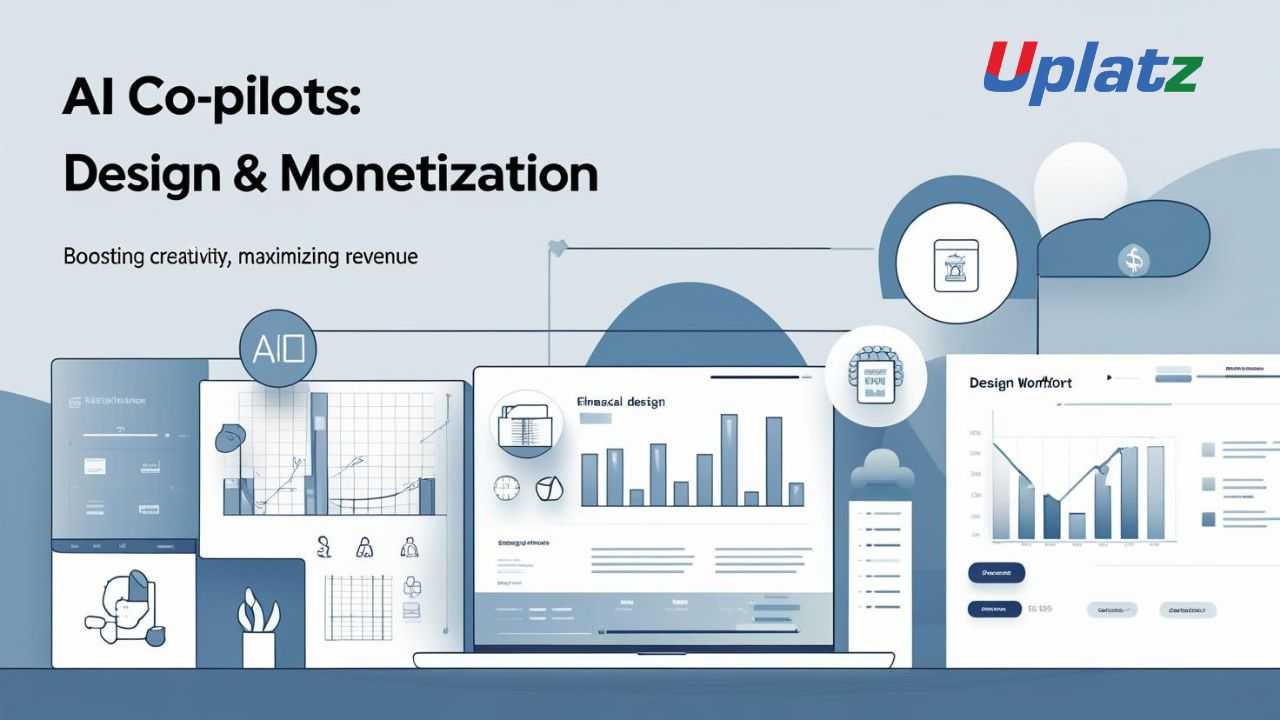AI in Healthcare
Learn how artificial intelligence is revolutionizing healthcare through diagnosis, analytics, and automation. Price Match Guarantee
Full Lifetime Access
Access on any Device
Technical Support
Secure Checkout
Course Completion Certificate
Price Match Guarantee
Full Lifetime Access
Access on any Device
Technical Support
Secure Checkout
Course Completion Certificate
 94% Started a new career
BUY THIS COURSE (
94% Started a new career
BUY THIS COURSE (GBP 12 GBP 29 )-
 81% Got a pay increase and promotion
81% Got a pay increase and promotion
Students also bought -
-

- AI Agents for Business Leaders
- 10 Hours
- GBP 29
- 10 Learners
-

- AI Co-Pilots: Design and Monetization
- 10 Hours
- GBP 29
- 10 Learners
-

- AI for Finance: Forecasting, Risk Scoring, and Portfolio Optimization
- 10 Hours
- GBP 29
- 10 Learners

AI in Healthcare – Transforming Medicine with Artificial Intelligence
AI in Healthcare is a comprehensive course designed to introduce learners to the rapidly evolving intersection of artificial intelligence, data science, and medicine. This course explores how AI technologies—ranging from machine learning and deep learning to natural language processing and computer vision—are being applied to improve diagnosis, treatment, patient monitoring, and operational efficiency across the healthcare ecosystem.
AI has the potential to revolutionize healthcare by enhancing diagnostic accuracy, predicting disease risk, automating administrative tasks, and enabling personalized medicine. This course provides both the conceptual foundation and the practical exposure needed to design and evaluate AI-driven healthcare systems responsibly and effectively.
Learners will gain a deep understanding of healthcare data, predictive modeling, medical imaging, clinical decision support, and ethical governance in AI applications. Through case studies, projects, and applied frameworks, you’ll learn to translate AI theory into meaningful healthcare innovation.
What You Will Gain
By completing this course, you will:
- Understand the core AI techniques transforming healthcare delivery.
- Analyze structured and unstructured medical data for AI model training.
- Design predictive models for disease detection and diagnosis.
- Apply AI in imaging, genomics, EHR systems, and drug discovery.
- Learn ethical, regulatory, and privacy considerations in medical AI.
- Build end-to-end prototypes for healthcare analytics and automation.
Hands-on projects include:
- A Disease Prediction Model using patient EHR data.
- A Medical Image Classification System for detecting abnormalities.
- A Chatbot for Healthcare Support and Triage using NLP techniques.
Who This Course Is For
This course is ideal for:
- Data Scientists and AI Engineers looking to apply their skills to healthcare.
- Medical Professionals interested in understanding AI’s role in diagnostics and operations.
- Healthcare Administrators and Analysts adopting AI-driven decision systems.
- Students and Researchers pursuing careers in medical AI and bioinformatics.
- Tech Entrepreneurs and Innovators developing AI-based health solutions.
Whether you’re from a technical or medical background, this course helps you bridge both domains with practical insights and real-world projects.
Why Learn AI in Healthcare?
Healthcare generates massive amounts of complex data—from patient records and imaging to genomic sequences and wearable sensors. AI technologies help extract meaning from this data, enabling earlier diagnoses, personalized treatments, and efficient care delivery.
Learning AI in Healthcare empowers professionals to:
- Build intelligent diagnostic and analytical tools.
- Improve patient outcomes through data-driven interventions.
- Automate repetitive tasks to reduce clinician workload.
- Support precision medicine through predictive analytics.
- Innovate responsibly in one of the world’s most impactful industries.
With global investment in healthcare AI projected to exceed $180 billion by 2030, the demand for skilled professionals continues to rise across hospitals, research labs, and digital health startups.
By the end of this course, learners will be able to:
- Understand the fundamentals of healthcare data and its challenges.
- Develop predictive AI models for clinical and operational use cases.
- Apply computer vision to medical imaging workflows.
- Use NLP for clinical notes, EHR data, and patient engagement tools.
- Implement AI ethics, compliance, and explainability frameworks.
- Evaluate and deploy healthcare AI systems safely and effectively.
Course Syllabus
Module 1: Introduction to AI in Healthcare
Overview of AI applications in medicine, history, current landscape, and potential impact.
Module 2: Healthcare Data and Information Systems
Types of healthcare data (EHR, imaging, genomics, sensor data) and data interoperability challenges.
Module 3: Machine Learning for Clinical Prediction
Supervised and unsupervised learning for disease classification and risk prediction.
Module 4: Deep Learning in Medical Imaging
CNNs, segmentation, and object detection in X-rays, MRI, and CT scan analysis.
Module 5: Natural Language Processing in Healthcare
Processing clinical notes, medical transcripts, and literature mining using NLP models.
Module 6: AI in Drug Discovery and Genomics
Molecular property prediction, compound screening, and genomic pattern recognition.
Module 7: Wearables, IoT, and Remote Monitoring
Real-time health tracking, sensor analytics, and anomaly detection in continuous monitoring.
Module 8: Clinical Decision Support Systems (CDSS)
AI-powered systems assisting clinicians with diagnosis and treatment planning.
Module 9: AI Governance, Ethics, and Regulation in Healthcare
Understanding HIPAA, GDPR, FDA, and WHO guidelines; responsible AI practices.
Module 10: Explainable and Trustworthy AI Models
Interpretability techniques and human-in-the-loop validation in clinical settings.
Module 11: AI Implementation and Deployment
Integrating AI into hospital IT systems, APIs, cloud environments, and security layers.
Module 12: Capstone Project – Building a Predictive Healthcare AI System
Design a complete AI-based healthcare solution—from data preprocessing to model deployment and compliance documentation.
Upon successful completion, learners will receive a Certificate of Achievement in AI in Healthcare from Uplatz.
This certification verifies your technical and ethical competency in developing and managing AI solutions that meet the high standards of healthcare safety, reliability, and compliance.
Professionals skilled in AI for healthcare can pursue high-impact roles such as:
- AI Engineer (Healthcare Applications)
- Clinical Data Scientist
- Medical Imaging Analyst
- Health Informatics Specialist
- Bioinformatics Researcher
- AI Ethics & Compliance Officer (Healthcare)
As AI-driven technologies transform diagnostics, patient engagement, and drug discovery, the demand for interdisciplinary professionals who understand both healthcare and AI continues to accelerate globally.
- What are the main applications of AI in healthcare?
AI is used in diagnostics, drug discovery, personalized medicine, predictive analytics, and administrative automation. - What types of data are commonly used in healthcare AI systems?
EHR data, imaging data, genomic data, sensor/wearable data, and clinical text. - How does AI improve medical imaging analysis?
AI uses deep learning models to detect, segment, and classify anomalies in radiology and pathology images. - What challenges exist in implementing AI in healthcare?
Data privacy, regulatory compliance, data heterogeneity, bias, and lack of interpretability. - What is a Clinical Decision Support System (CDSS)?
A system that assists healthcare providers by offering AI-driven insights for diagnosis and treatment recommendations. - How is NLP applied in healthcare?
It’s used to process clinical notes, extract medical entities, summarize research papers, and power chatbots. - What are the ethical concerns surrounding AI in healthcare?
Bias in data, patient privacy, lack of transparency, and overreliance on automated decisions. - What is the role of explainability in medical AI models?
Explainability builds trust by allowing clinicians to understand and validate AI-generated results. - How can AI support drug discovery and genomics?
AI accelerates compound screening, target identification, and genetic pattern recognition for precision medicine. - What regulations govern AI in healthcare?
HIPAA (for privacy), GDPR (for data protection), FDA AI/ML frameworks, and emerging WHO/EMA standards ensure safety and compliance.









